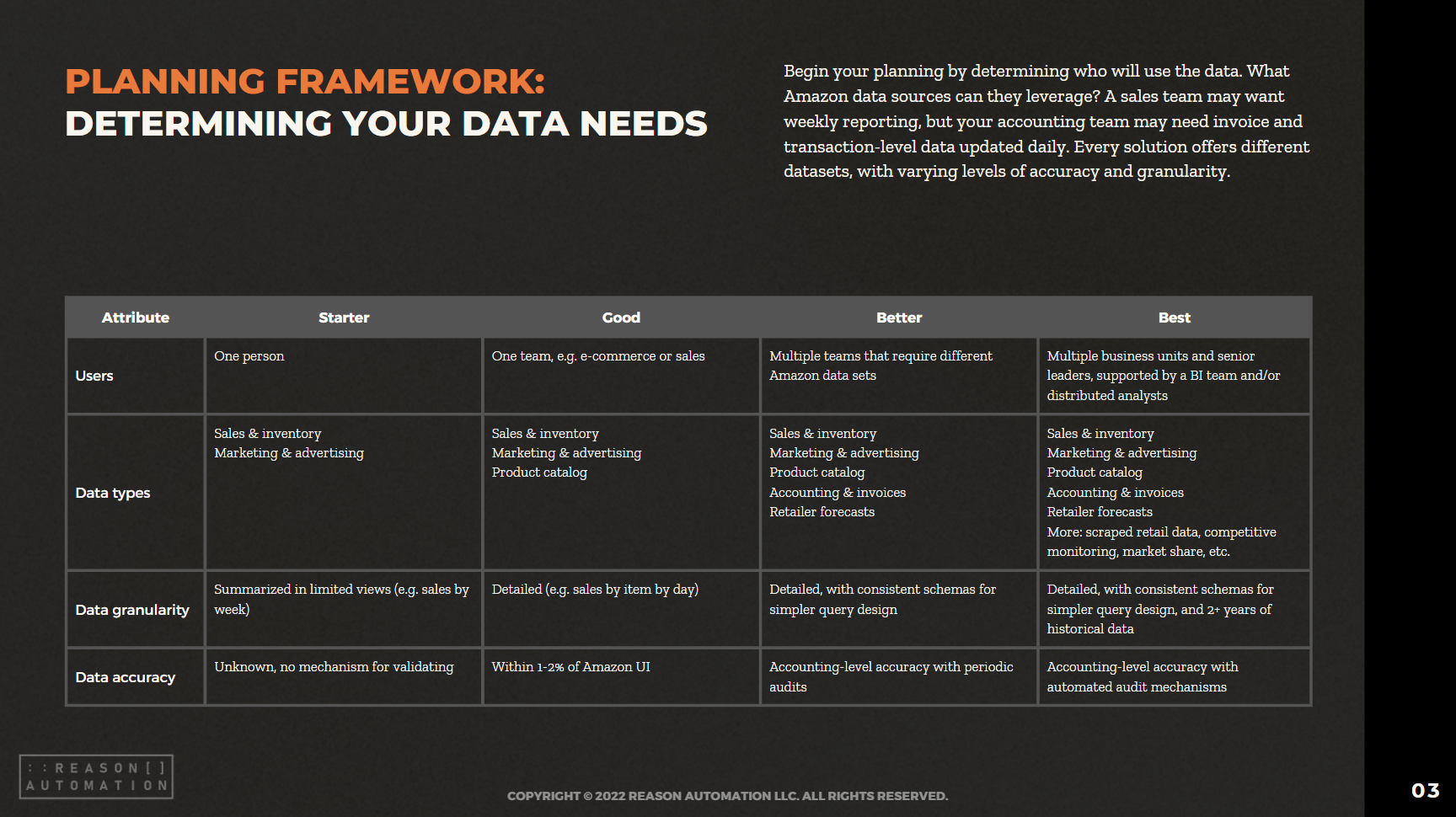Amazon Vendor Management Explained: Is It Right for Your Business?
It's common for ecommerce companies to hire a third-party company or manager to handle everything in Vendor Central, from purchase orders to sales and promotions. If you’re feeling overwhelmed as a vendor, or just want to free up more of your time to grow your business, an Amazon full service agency might make a lot of sense.
But is the price worth it? Or should you just try to handle everything on your own? This brief guide breaks down some of the services third-party Amazon consultants offer, their benefits and drawbacks, and how to determine if you should contract one.
Amazon Vendor Central Account Management: Offered Services
The services you get from each management company will differ, but here are some of the basics you can expect.
Forecasting/Inventory Management: The manager will ensure that you are properly forecasting product sales and stocking accordingly. The manager will also handle orders, communications, and general shipping logistics.
Account Monitoring: The manager will watch out for things like chargebacks and other issues with your account, and provide you with advice on how to address them.
Product Listing Optimization: Managers will tweak your product listings to ensure everything is accurate, cleaned up, and checks all the boxes it needs to check to perform the best it possibly can when that product is searched.
Negotiations: Your negotiations with Amazon determine what rates you get, which are based on things like stocking and chargeback rates. Managers aim to get you the best deal possible.
Analytics: Managers can conduct a detailed dive into your data to make some recommendations for your business, like new product opportunities and optimal inventory levels.
Advertising Management: A manager can help a vendor better reach relevant customers with their ads, as well as provide insights on the right keywords to use and how to optimize current ad campaigns.
Full Service: The management company handles everything listed above.
Benefits of Hiring an Amazon Vendor Central Manager
There are a couple of main benefits to hiring a vendor central manager: expertise and more specialized resourcing.
Expertise
Your team may not have the expertise to handle certain aspects of Vendor Central. In this case, it may make sense to a third party to handle that aspect of the business for you. For example, you might handle inventory management and analytics just fine, but you're not confident in your advertising abilities and want someone to optimize your campaigns.
Specialized Resourcing
Even if you can handle all the aspects of Vendor Central just fine, it might make sense to have more specialized resourcing for different areas of the business. So instead of having one person do a whole lot of things, you're able to outsource one or two of those things to a management company and focus your team on what they're good at. For example, you could have an Amazon VA (virtual assistant) work remotely to free up your team from many manual tasks.
Drawbacks of Hiring an Amazon Vendor Central Account Manager
The drawbacks of hiring a vendor central manager is the risk of a potentially unnecessary expense, duplicative efforts, and a general loss of efficiency.
As a business grows, it tends to hire more people. Eventually, you may have enough people to manage all of the aspects of Vendor Central yourself. At that point, hiring a Vendor Central manager may do more harm than good because you may be duplicating efforts and stepping on each other's toes. The end result is a loss of efficiency and wasted money.
But just because you're growing doesn't mean you'll outgrow the need for a Vendor Central manager. Sometimes, you still want a third-party agency to handle the tactical day-to-day tasks, especially if you sell through other channels besides Amazon. Companies must decide what is in their best interest on a case-by-case basis.
Is a Vendor Central Manager Right for Your Company?
Generally speaking, if your organization lacks the expertise, sometimes going with a third-party manager is a better route to take. But if you have experience with Vendor Central or have the staff that can handle it, you may be able to save money and run your business more efficiently by doing it yourself.
How do you know for sure? Try running it for a few weeks and track the time you or your staff spend on it. How many labor hours could you devote to other tasks if you hired a manager? Once you know that, it becomes a lot easier to make an informed decision.
Learn How to Manage Your Vendor Data Better
Even if you feel like you’ve got all other aspects of Vendor Central management, we guarantee you are struggling with the data side. Amazon does not make it easy to extract and compile data. Fortunately, there are many methods for you to choose from. We’ve compiled them all (and discussed their strengths and weaknesses) in the whitepaper below, which is free to download.


